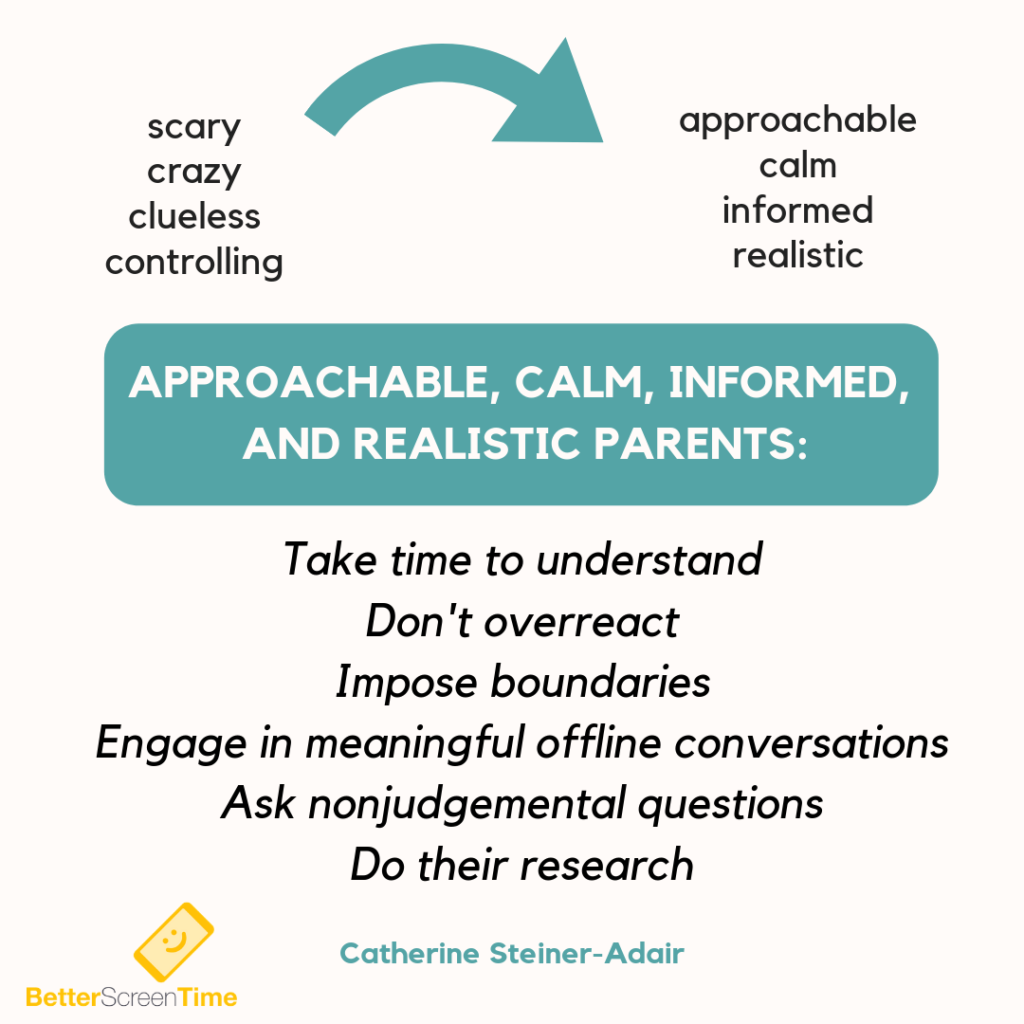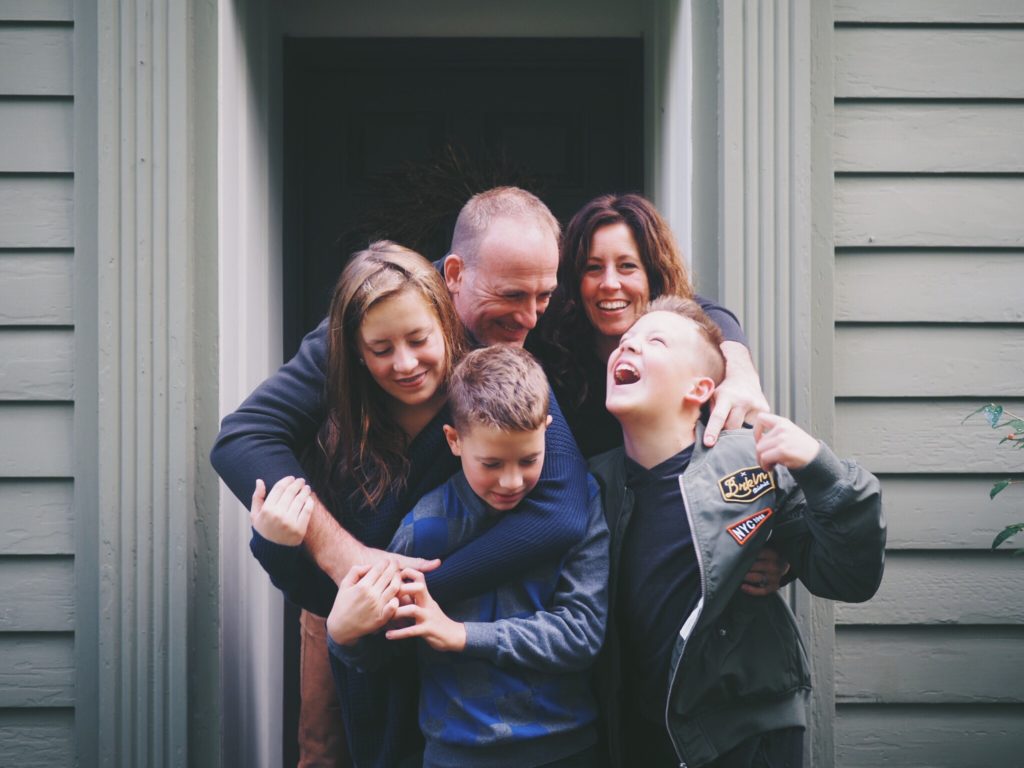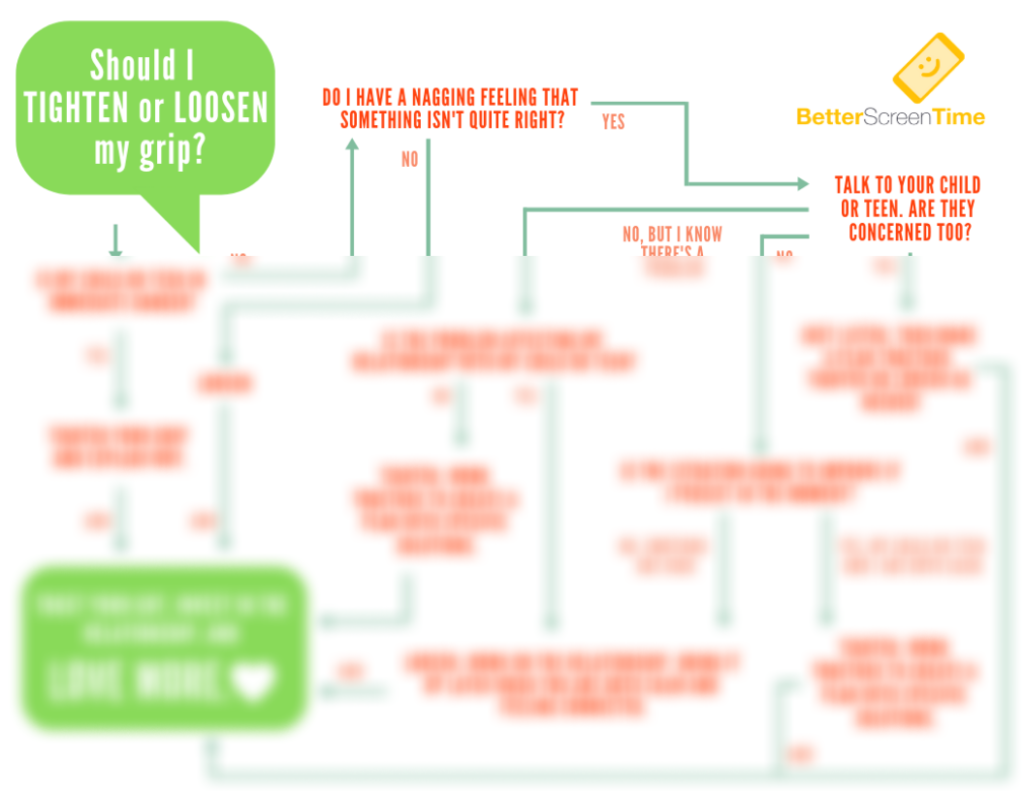Do you ever feel scary, crazy, clueless, or controlling when it comes to technology and your kids? Which one do you relate to most?
In the past, I most often identified with the controlling parent. But I have come a long way!
When we act out of fear, we tend to tighten our grip and overreact.
In her book, The Big Disconnect, Catherine Steiner-Adair helps us to know what we should not be—scary, crazy, or clueless. (I added “controlling” based on my experience, conversations with other parents, and reading.)
She also helps us to know what we should be—approachable, calm, informed, and realistic.

What helps you to be this kind of parent? We’d love to know!
Because we are human, it’s impossible to react perfectly in every situation with our kids. And, throw a screen into the mix, and sometimes things can get sticky in a hurry!
Just the other day…
my kids were watching some YouTube videos together (we try to limit YouTube to open viewing areas as much as possible), and I could tell that the video they were watching was leading to inappropriate content. In my mind, this was a situation where I needed to intervene immediately. I took the remote and changed the channel and explained why.
On the exact same day, one of our kids knowingly violated a rule in our family technology plan. We were on vacation, and this child felt that the rule didn’t apply. I reminded this child, that yes, our plan was in effect no matter where we were. However, the conversation quickly escalated, and I realized that I needed to drop it.
I moved on, and choose to ignore the infraction temporarily—actually for an entire day. I returned to the discussion the following day when we were both calm and able to discuss the problem rationally. Thankfully, my child listened and choose to follow our family’s rules.
These two experiences helped me to realize how often we, as parents, have to choose whether we will tighten or loosen our grip. How we respond can vary from child to child and from situation to situation.

We know that a flowchart might seem like we are oversimplifying something that is actually a difficult process (usually happening in a matter of minutes).
As I journaled about my experience I started writing myself little reminders and cues to help me know how to respond in the future. The end result was a flowchart!
But, we have found that it is extremely helpful to think through things ahead of time. If we consider how we might react, this can help us to do as Catherine Steiner-Adair suggests; not overreact and take time to understand where our child or teen is coming from.
We created this flowchart to help us and you!
We’ve shared this printable with our email list already, but if you’re new here, click here to grab your copy!

As an Amazon affiliate, I earn from qualifying purchases.

0 Comments